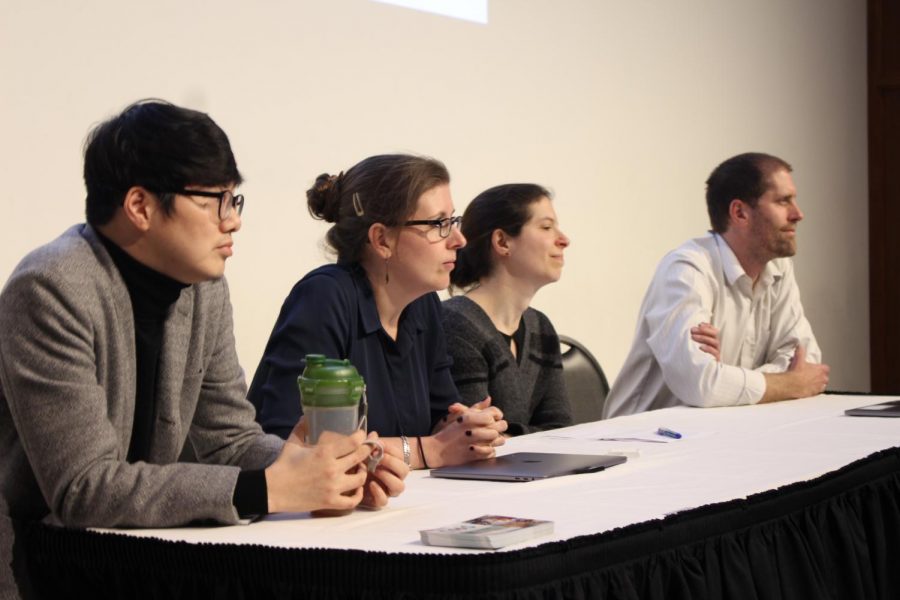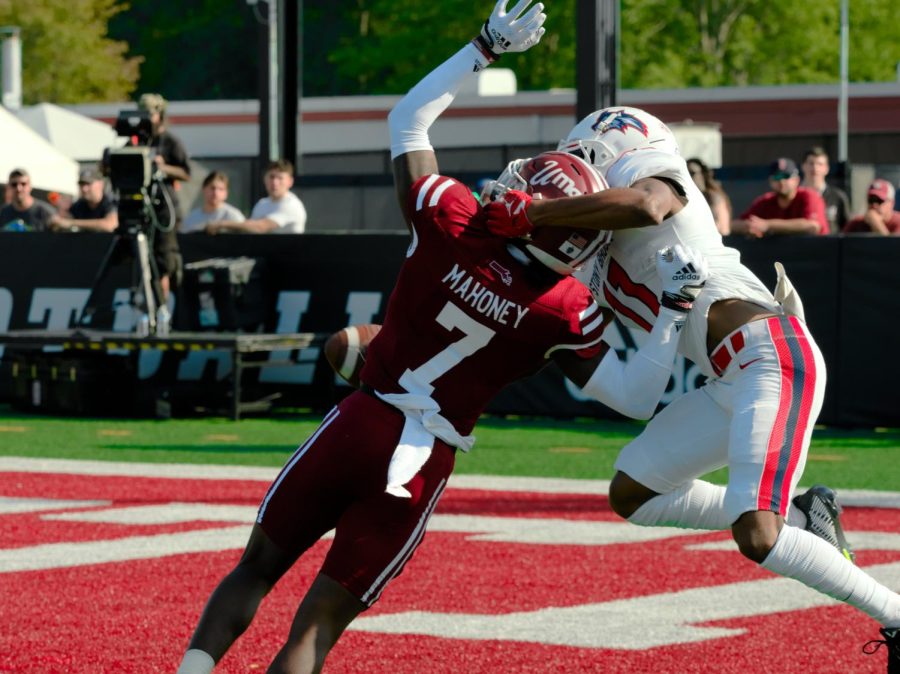To address local and global concerns surrounding the virus COVID-19, commonly known as the coronavirus, the Five College Culture, Health, and Science program hosted a roundtable discussion featuring four experts in health and Chinese history at Amherst College on Wednesday.
Each guest speaker addressed mounting concerns that the virus could spread to the United States and specifically the Pioneer Valley, despite the Centers for Disease Control listing the area threat level as low.
“The movement of information, like viruses, is really different now than in 2003,” Brown University medical anthropologist Katherine Mason said. There’s been an explosion of online information, disinformation and serious discontent.”
“This is no longer a China story,” Chinese historian at Amherst College George Qiao agreed. He said the sheer scale of the lockdown is the greatest crisis the country has faced since the death of Chairman Mao Zedong. Qiao looks forward to examining this event in a historic context.
“Imagine what would happen if the US government sealed off the entire population from Washington D.C. to Maine,” Mason said, referring to the Hubei province in China that’s been on lockdown for over a month where schools, public transportation and everything but disease control has halted.
Wuhan, where the virus originated, is the capital city of Hubei. “This is roughly the population that has been under the strictest lockdown in Hubei province.” Mason said the massive quarantine isn’t just an inconvenience, but a catastrophe.
“When quarantine and isolation are discussed, there are a lot of important discussions that should be held surrounding public good and individual liberties,” Andrew Lover, infectious disease epidemiologist at UMass, said. A balance between the two can and should maximize both, he said.
Lover reminded the audience of what he calls preschool rules: wash your hands, always use a tissue instead of your sleeve and don’t share utensils. He also encouraged people to make a plan in case they get sick. “Find a ‘flu-buddy’ or someone you can communicate with that isn’t sick and could aid you,” he said.
UMass Chancellor Kumble Subbaswamy addressed growing concerns within his own University in a school-wide email the same day. He said he has appointed community members to a Campus Preparedness Working Group to ensure the University’s auxiliaries like University Health Services and on-campus housing will be prepared. Subbaswamy also said in the email he has appointed an Academic Planning Working Group in order to address possible academic implications.
“Each of these working groups is coordinating closely with the campus Emergency Operations Center Team, which is preparing for a myriad of scenarios,” Subbaswamy said. “We are also working closely with the Centers for Disease Control, DPH and the Governor.”
Massachusetts Governor Charlie Baker on Wednesday requested all schools to cancel international travel. Last Friday, UMass requested that all of their students currently studying in Italy return to the United States immediately. On Tuesday, the University informed returning students that they should self-quarantine themselves for 14 days in accordance with CDC mandates.
“Nobody wants their kids sick and alone in Italy,” Mason said.
To ease tension, the panelists remained hopeful of the future.
“In 2002, we had to wait four months for a full gene sequence for the SARS. We got COVID-19’s sequence in a few days,” UMass virologist Mandy Muller recalled. It was easier this time, especially because this new virus was so similar to SARS, but different enough to realize this virus was new.
COVID-19 is shorthand for coronavirus disease 2019. The virus affects the respiratory system, causing coughing, fever, and shortness of breath. World Health Organization reports over 93,000 confirmed cases worldwide as of Wednesday, 10 times more than total recorded cases of SARS disease in 2003.
Lover will host a second information panel on Thursday, March 5, at Skinner Hall room 112, UMass Amherst, at 11:30 a.m. to further discuss the implications of the epidemic. The lecture will also be streamed on Zoom.
Nate Procter can be reached at [email protected].



















